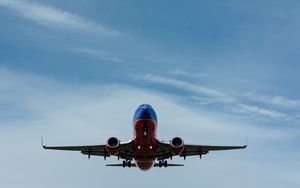(Finance) – Airlines for Europe, European Regions Airline Association, Italian Board Airline Representatives el’Italian Association of Low Fare Airlines – some of the major airline trade associations – said that “a new report shows that the introduction of a fuel tax for aviation at European level will reduce tourism spending, impact economic growth and reduce jobs in Italy and Lazio.” A report commissioned from global economic consultancy Steer calculated that a tax on aviation fuel would lead to a reduction in GDP by Lazio Of 640 million euros and to a larger reduction of 4.1 billion euros in the Italian economy.
The tax would also impact theoccupation, with a loss of 39,200 jobs across Italy. The report, the carriers continue, “highlights that a tax on aviation kerosene will not contribute in any way to the sustainability efforts of airlines, as the money collected will not be allocated to decarbonisation of aviation”.
The report also finds that the introduction of a tax on aviation fuels would lead to a 6.1% reduction in demand for passengers, to a decrease of 5.4 billion euros in tourism spending and a reduction in GDP of 4.1 billion euros throughout Italy. In the Lazio region, this will result in a reduction in GDP of 640 million euros. The associations call for the EU to focus on implementing measures directly linked to reducing the environmental impact of aviation and which preserve the competitiveness economic and social benefits of European aviation.
“Italy – he stated Ourania Georgoutsakou, managing director of Airlines for Europe – is one of the most popular tourist destinations for Europeans. Our report shows that a tax on kerosene will challenge this and encourage Europeans to seek destinations outside of Europe. Aviation intends to do its part, but measures like this will not accelerate the decarbonisation of aviation. We encourage public decision makers to focus on creating solutions that actually work.”
“Aviation plays a crucial role for regional connectivity, particularly in regions such as Lazio, whose economies are based on tourism – he added Montserrat Barriga, director general of the European Regions Airline Association –. While a European-wide tax on aviation fuel will lead to an increase in ticket prices and create important consequences for local regional economies, on the other hand the aviation industry will still need investments to support its growth path. decarbonisation. A collaborative approach between industry and politics is needed to find appropriate solutions that benefit the environment, industry, consumers and regions.”
“In our role as an association representing 50 airlines operating in Italy, we are committed to making Italy an attractive destination – he continued Luciano Blacks, general secretary of the Italian Board Airline Representatives –. Taxation drains resources that could otherwise be used to achieve our sector’s ambitious decarbonization goals. This study highlights the need for policy decisions to take into account the overall impact and not just focus on the short term.”
“The introduction of this new tax – he concluded Alexander Sourcespresident of the Italian Association of Low Fare Airlines – will immediately increase ticket prices for flights within the EU, damaging intra-European air connectivity”.
(Photo: Gary Lopater on Unsplash)
